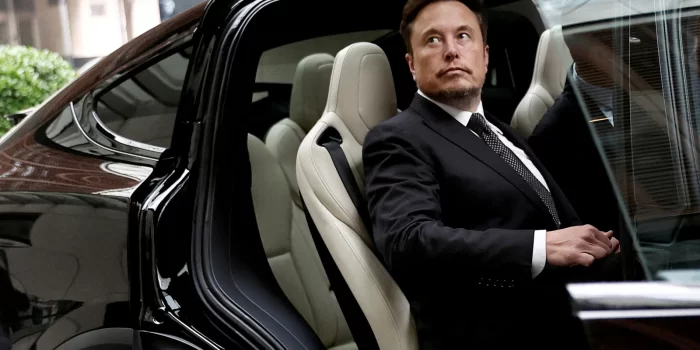Tesla’s latest quarterly results painted a conflicting picture. Sales figures took a 9% year-over-year nosedive, marking the first such drop in four years, and operating profit plummeted by more than half. Guidance offered little solace, with executives forecasting “notably lower volume” ahead.
However, the stock market reacted with a surge of excitement. Investors seemed to latch onto promises of new models and a future dominated by autonomous ridesharing. This optimistic pivot came straight from CEO Elon Musk, who downplayed Tesla’s role as a traditional car manufacturer.
Musk’s vision? Tesla as a digital platform akin to Uber or Airbnb, orchestrating a vast fleet of self-driving robotaxis. This bold goal aims to woo investors with the potential for explosive future growth. However, it creates a clear tension. The current market clamor is for more affordable electric vehicles, a desire seemingly downplayed in this strategic shift.

Analysts are divided. Some, like Jefferies, view Tesla’s accelerated product launches favorably, suggesting it caters to the immediate market demand. Others, like UBS, remain skeptical. They question the timeline for Musk’s robotaxi ambitions and express doubts about the entire business model’s viability.
Undeterred, Musk remains his characteristically confident self. He asserts that solving autonomous driving is the key to Tesla’s future and dismisses doubters. “If somebody doesn’t believe that Tesla is going to solve autonomy, I think they should not be an investor in the company,” he declared on the earnings call.
While the recent quarter jolted the stock market, skepticism lingers. Jefferies’ note reflects this concern, highlighting the “unwavering commitment to robotaxi” without providing any concrete details on its execution. UBS analysts were even more critical, questioning Tesla’s Full Self-Driving technology (FSD) and expressing doubt about the existence of a “cyber-cab” service this decade.

Musk, however, sees the day Tesla unlocks unsupervised full self-driving as a potential catalyst for “the biggest asset value appreciation in history.” Whether this day arrives sooner rather than later, or even at all, remains to be seen. But one thing is clear: Tesla is making a major gamble on a future where human drivers become a relic of the past.
The company’s success hinges on navigating this strategic shift effectively. Can it deliver the promised cheaper EVs to keep investors happy in the present, all while laying the groundwork for a revolutionary autonomous future? Only time will tell if Tesla can pull off this audacious balancing act.


